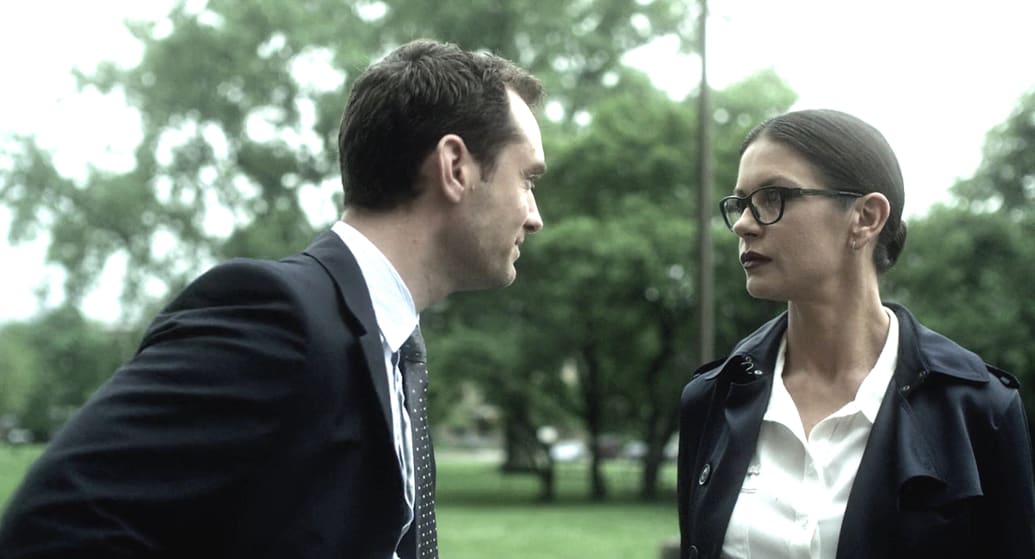It would be easy to take a look at the director of one of the most outwardly steamy film franchises this century and think, “Ah, that guy knows a thing or two about sex!” With the -ian in the scope of its mystery, but be assured that Rooney Mara drove her car into a wall so Rosamund Pike could knock herself in the face with a hammer. Soderbergh’s film is so effective because it remains grounded in a believable reality. There is a real-life case to point to in each twisted instance, especially when the film allows the audience to wonder if Emily was treated differently by her psychiatrist because she’s a woman. Soderbergh keeps an undercurrent of commentary about medical malfeasance running throughout the film, alluding not just to the gendered differences in medical treatment but the racial prejudices that permeate healthcare.
Despite those conversations, Side Effects never takes a turn so grave that it can’t juggle its critiques of a fractured system with its script’s innate sensuality. Law and Mara are a perfectly matched doctor-patient dyad. They push and pull on each other with an intensity so smoldering that it remains detectable even in the film’s most narratively complex moments. Mara, in particular, is a joy to watch as she navigates a mystery of her own making, transforming from a kind of archetypal wounded bird into a slinking vulture.

Jude Law and Catherine Zeta-Jones.
Open Road Films
For a film that so clearly enjoys toying with its audience, Side Effects makes space to pose legitimate questions about personal healthcare. While its central mystery twirls the viewer around its finger like a lock of tousled hair, Soderbergh and screenwriter Scott Z. Burns are throwing out keen criticisms of the sliminess of Big Pharma and society’s perception of mental illness. It’s a tricky matter to construct a puzzle that skewers drug companies and how doctors operate without falling into a nasty “Medication Is Bad” hole. But Side Effects deftly navigates that tightrope without plummeting into holistic fear-mongering.
Unlike a good amount of the thoroughly adult thrillers that have been released over the last decade, Side Effects attaches social commentary to its narrative with a power drill, not a screwdriver. It’s difficult to extricate the ideas that the movie poses from the film itself. Whereas, if you gaze at something like The Menu or Don’t Worry Darling for too long, their ideas about sexuality as currency and disparity between social classes begin to fall apart. Side Effects has remained so taut because of Soderbergh and Burns’ reluctance to cut corners. They know how to entertain while seering a fascinating critique into their films, so that we can still smell the smoke a decade later. More filmmakers would do well to worry less about rote retreads—updated for the current cultural moment—and care more about crafting keen genre subversions like this one.
At face value, Side Effects’ winding mystery may not seem as sexy as the rippling abs, bulging pecs, and all the other things you’ll find atop a steaming slice of Magic Mike machismo. Channing Tatum’s shirt even remains firmly on his back before a butcher knife goes slashing through it. But Side Effects burns slowly. It has an almost imperceptible sexiness to it, always simmering under the surface. Lies, and the ways we use them to manipulate others and pull them into our suffering, are just as powerful and alluring as the physical body. Duplicity can drive our minds wild with pleasure and pain in equal measure. What could be sexier than a little deception?
Sign up for our See Skip newsletter here to find out which new shows and movies are worth watching, and which aren’t.



